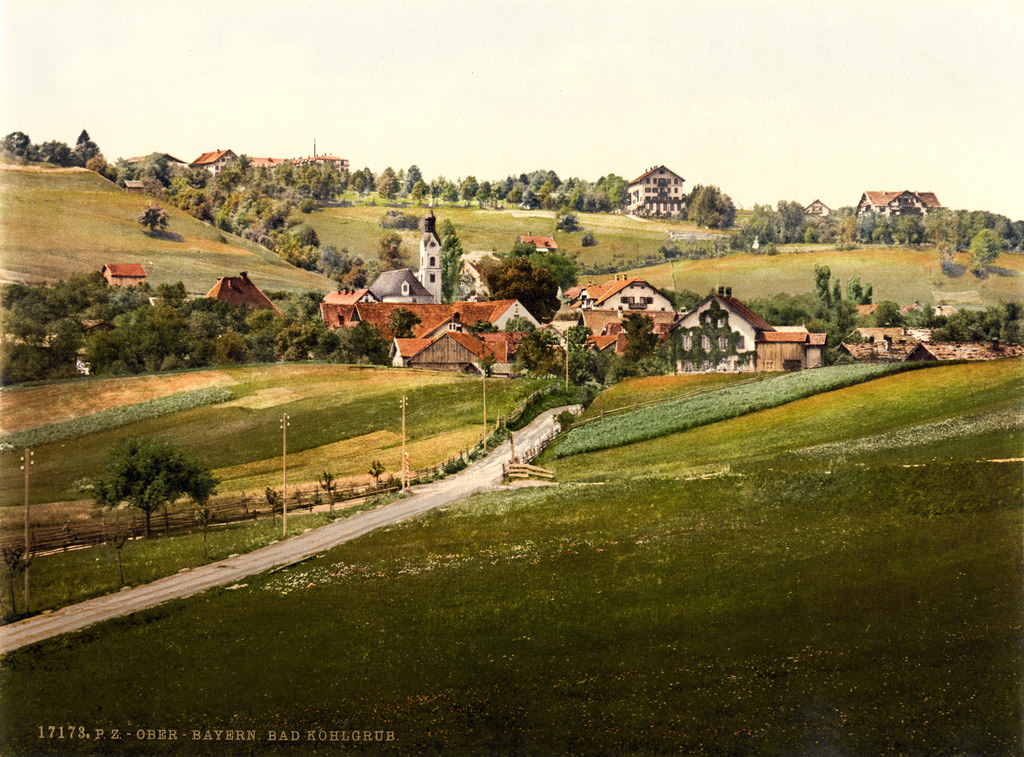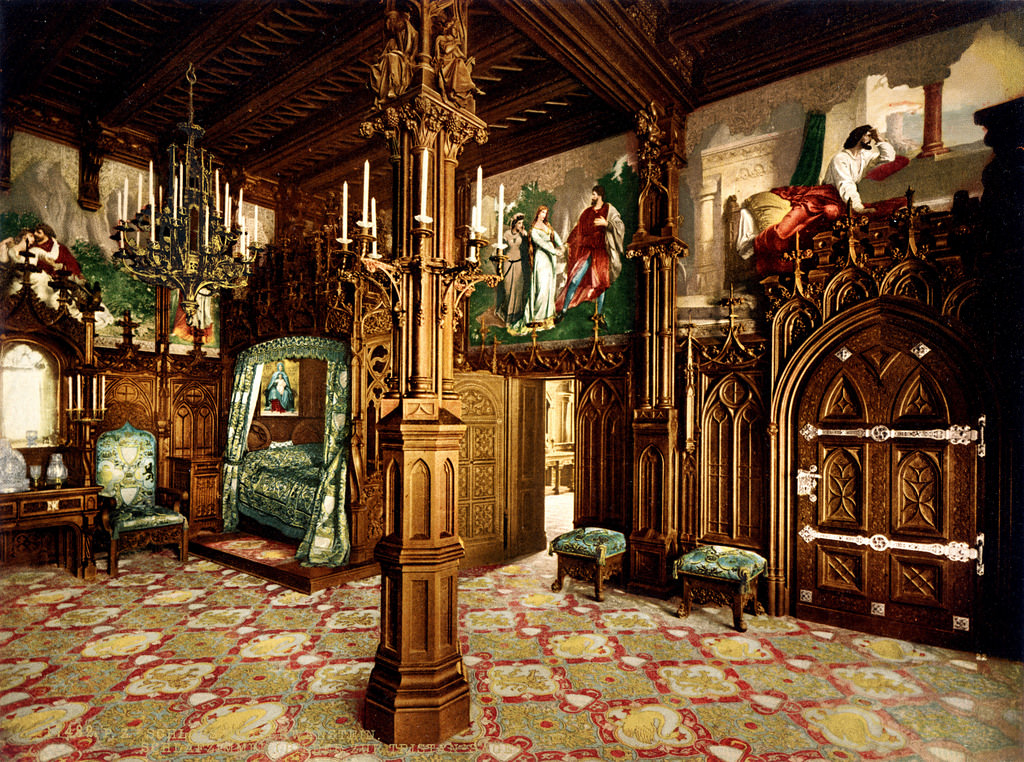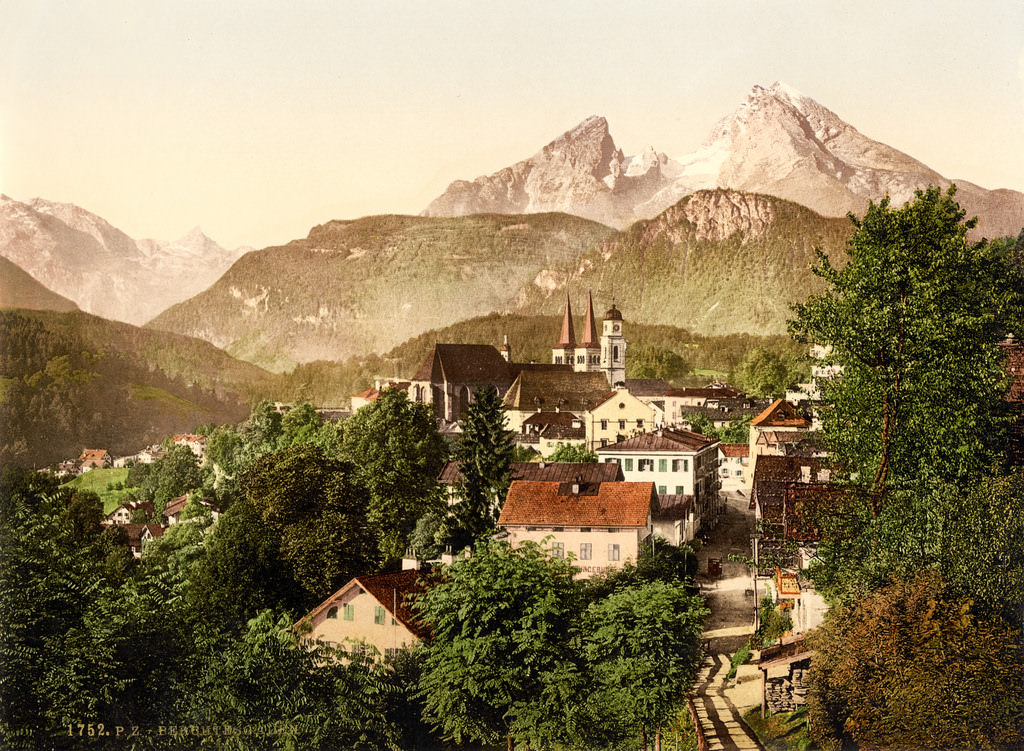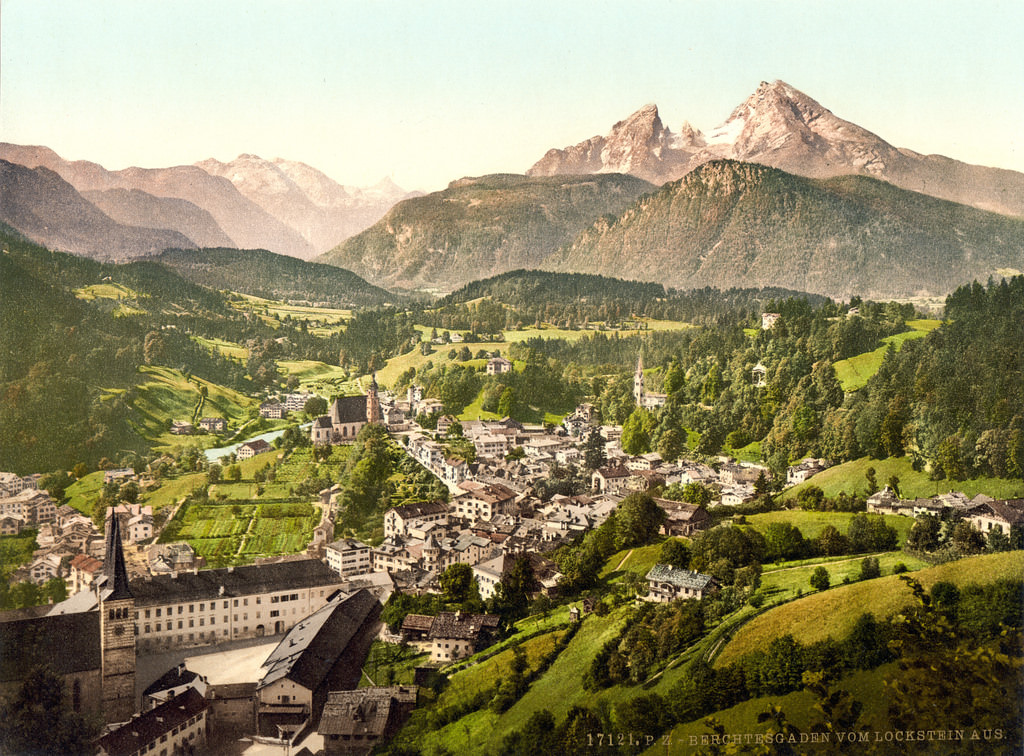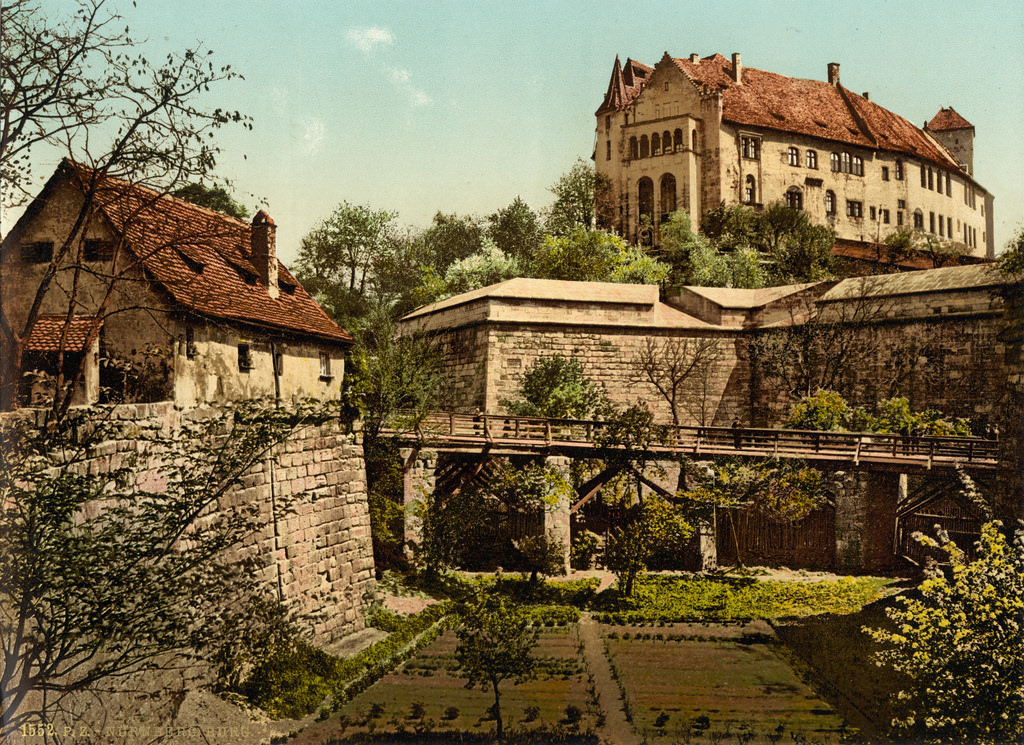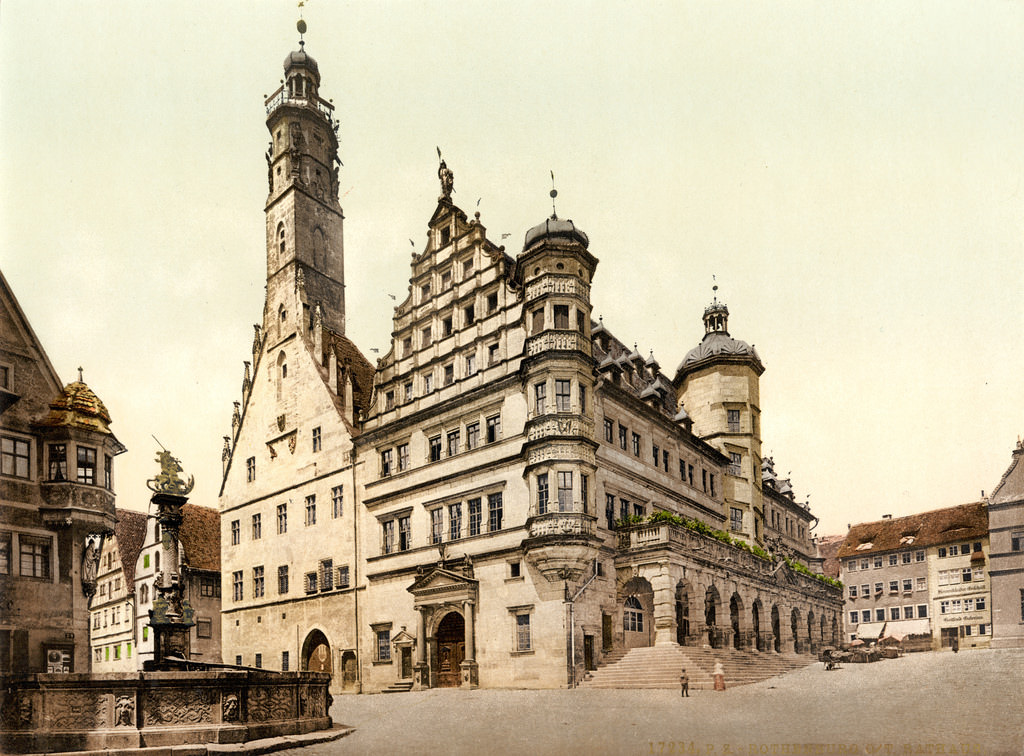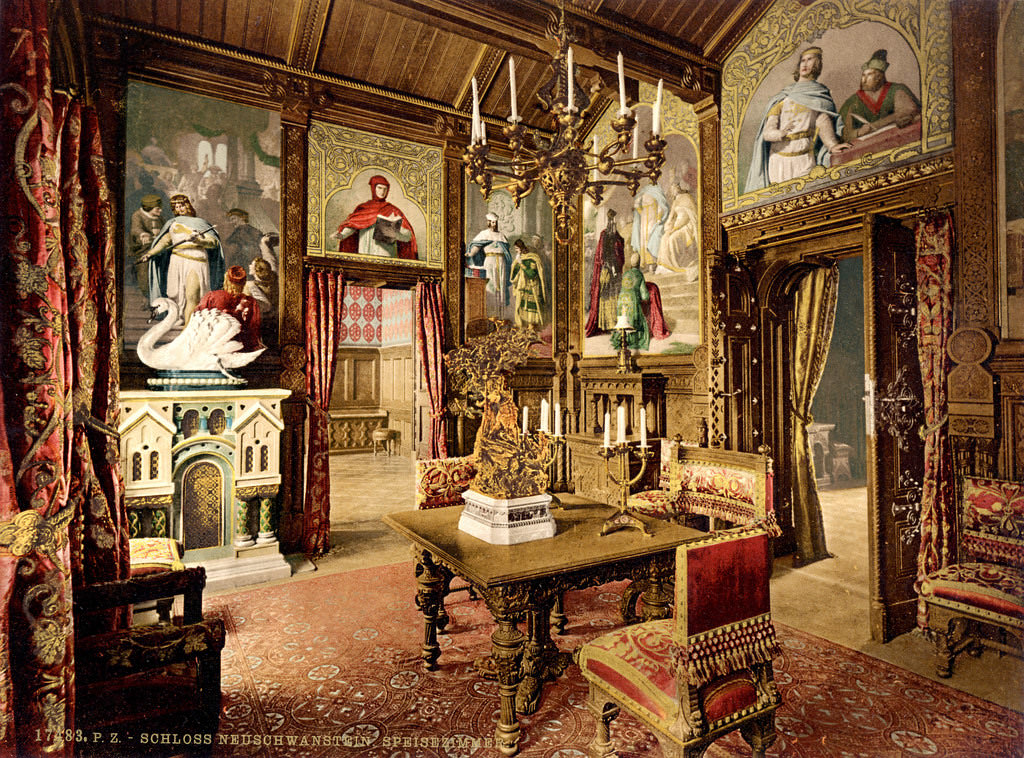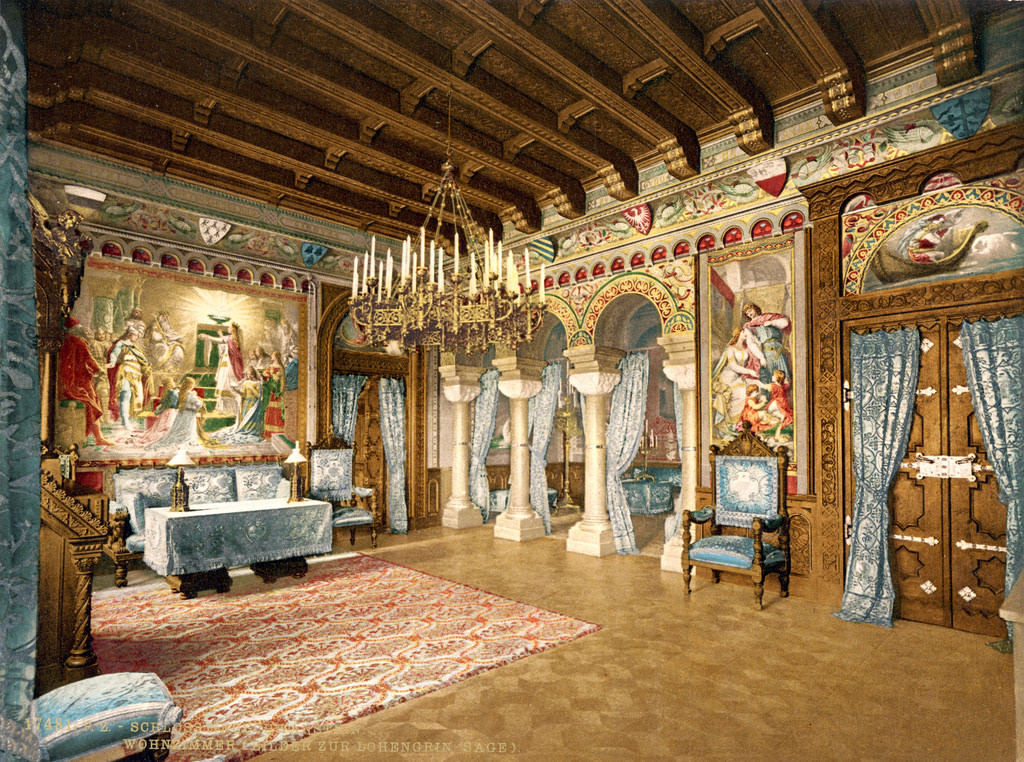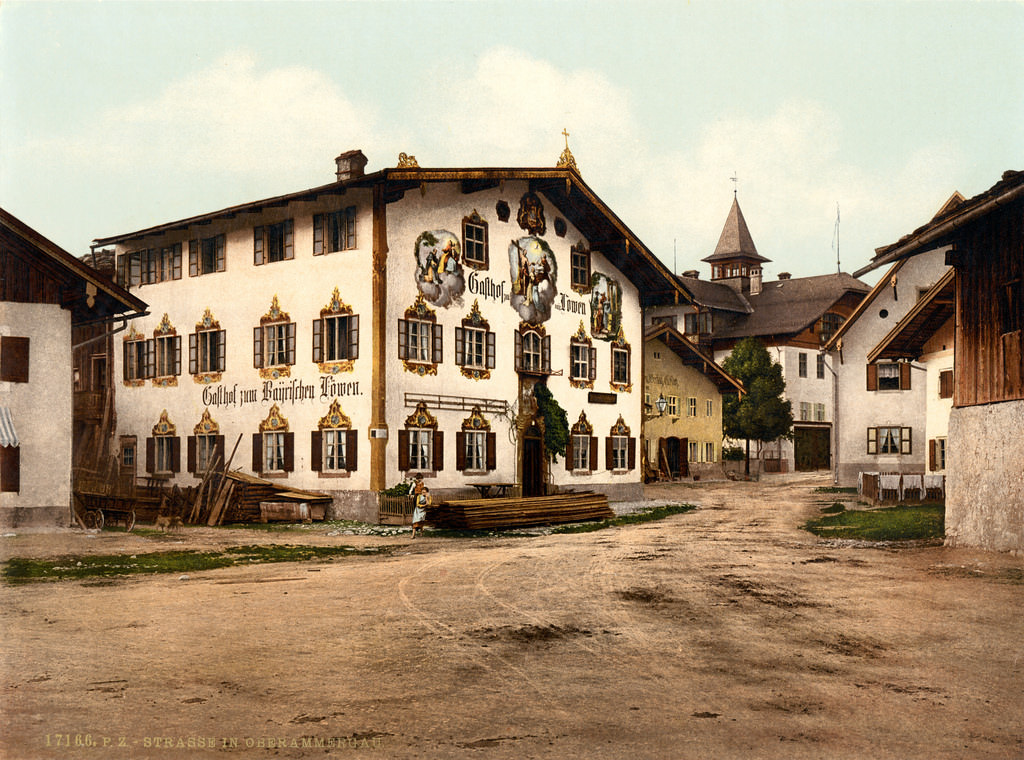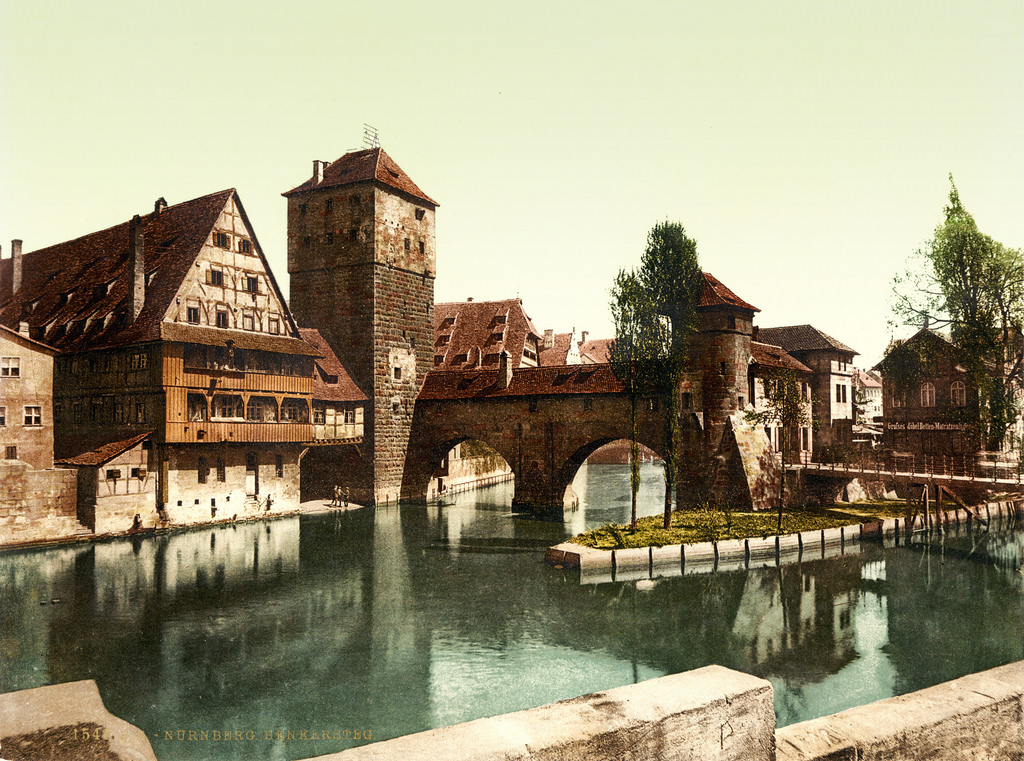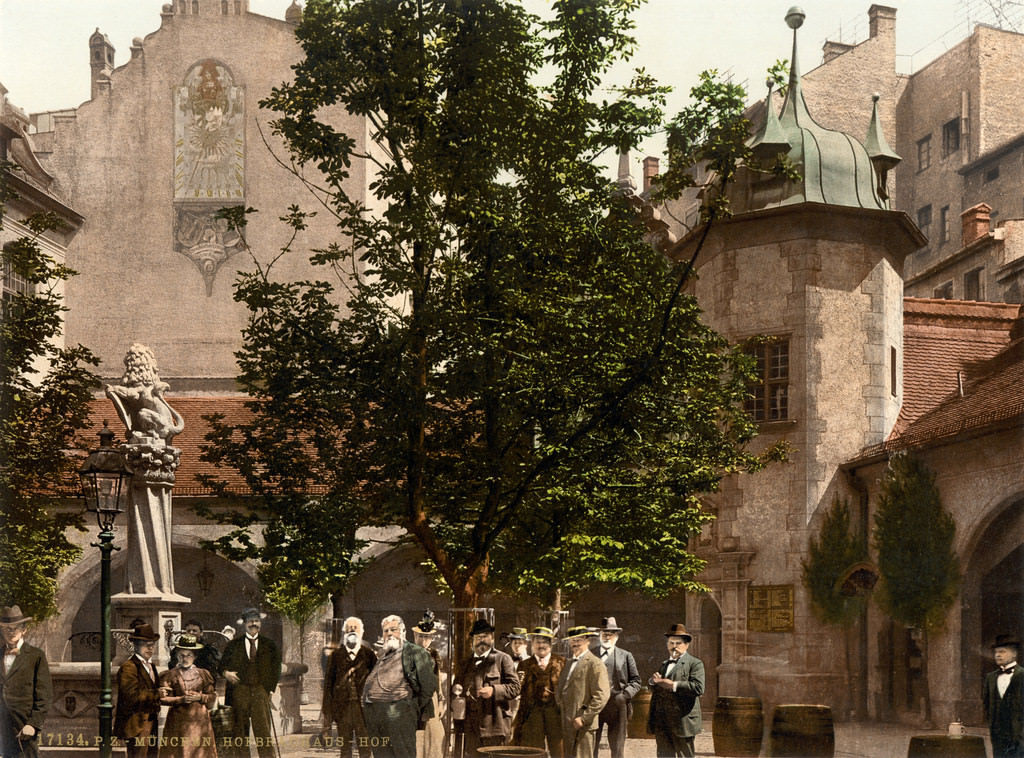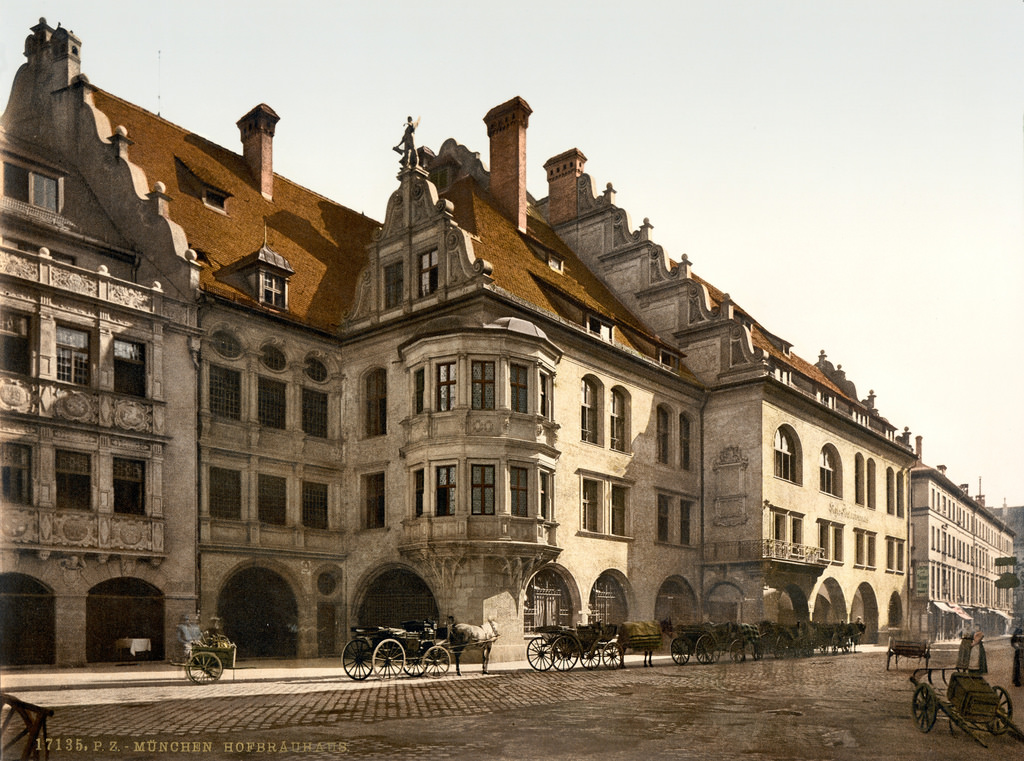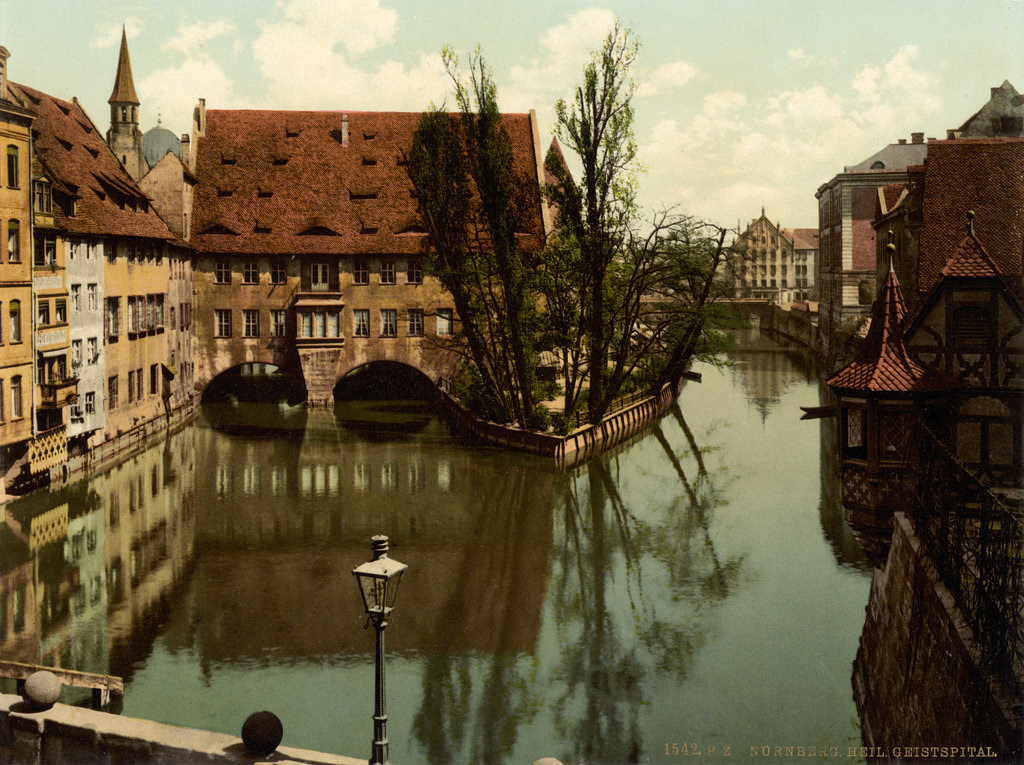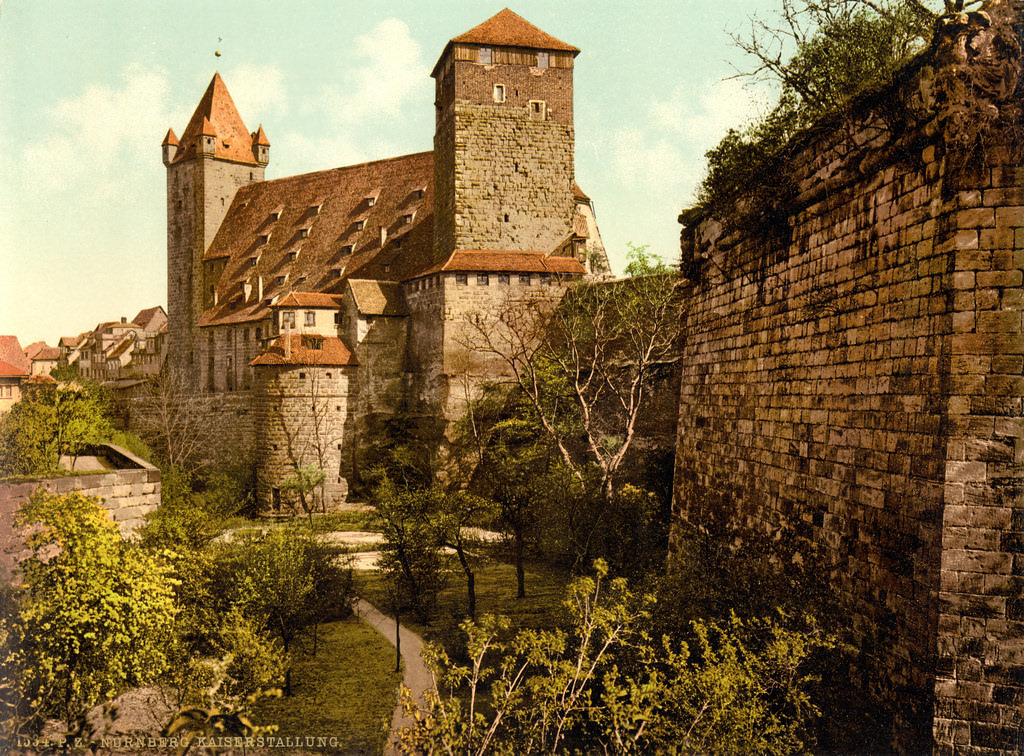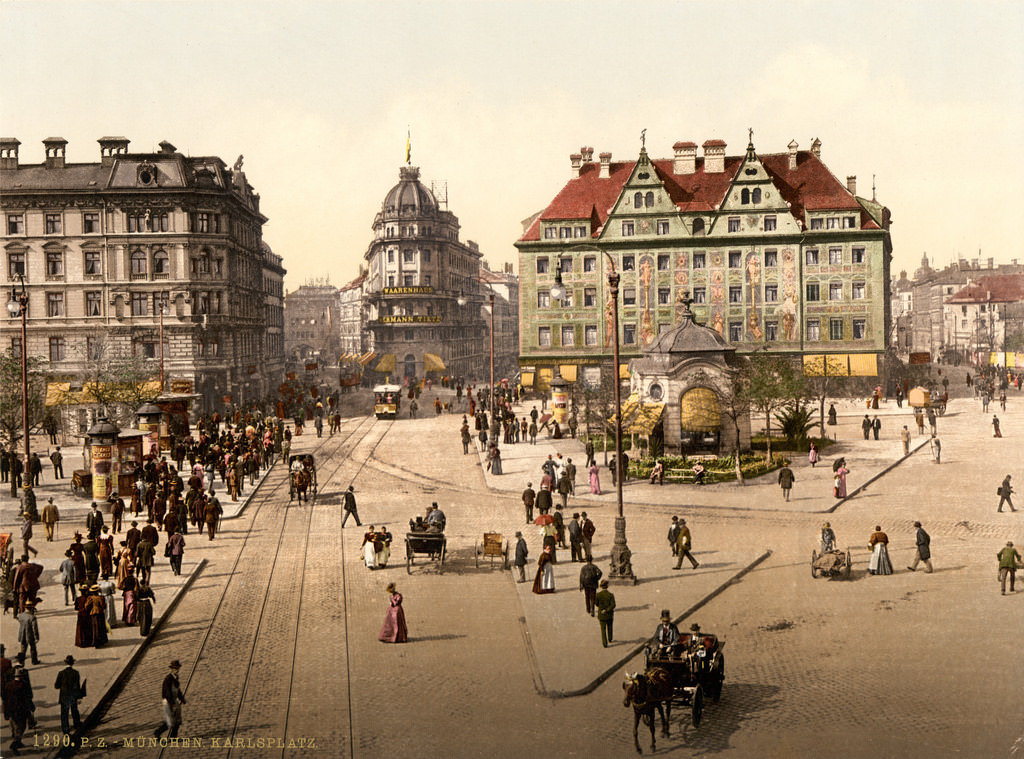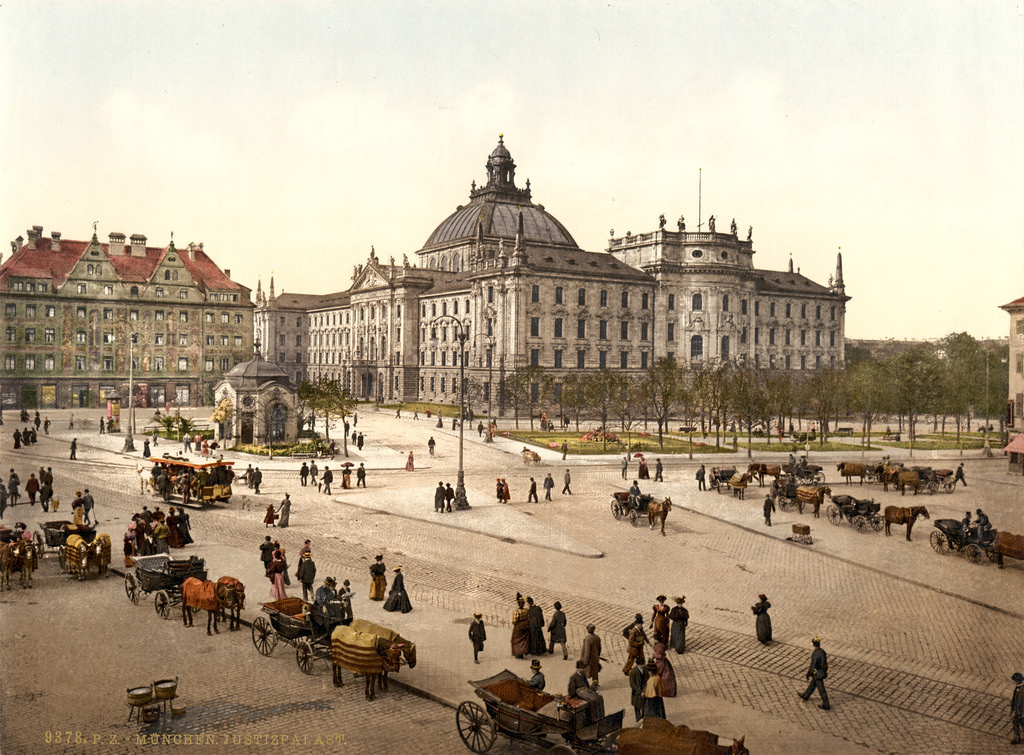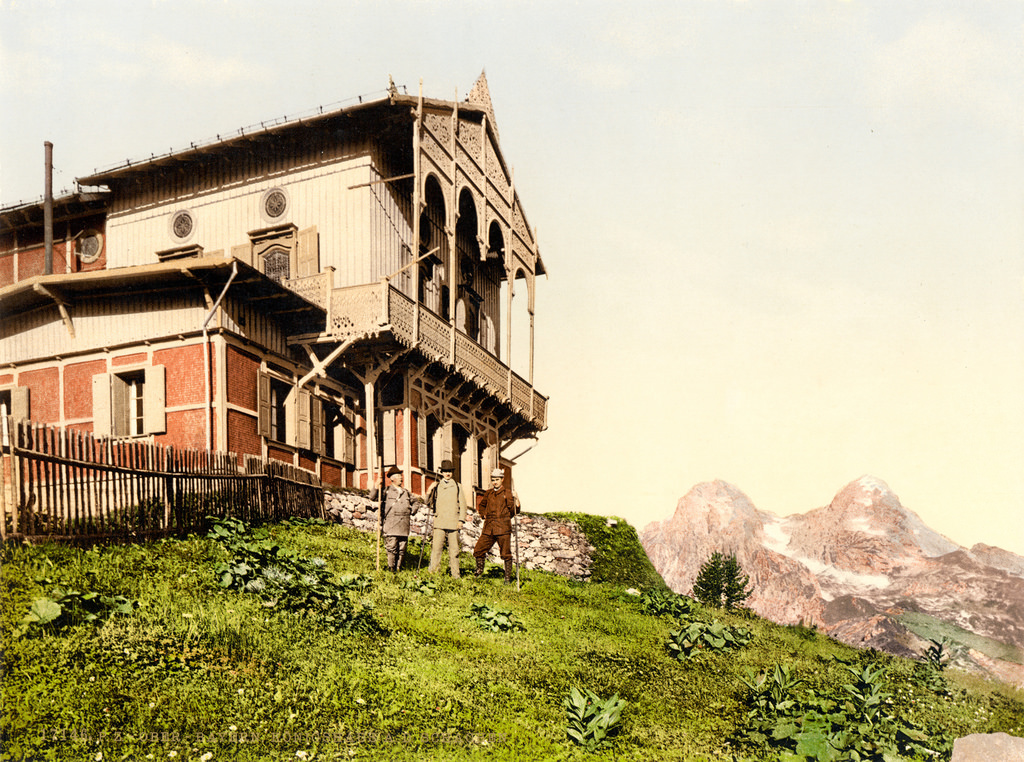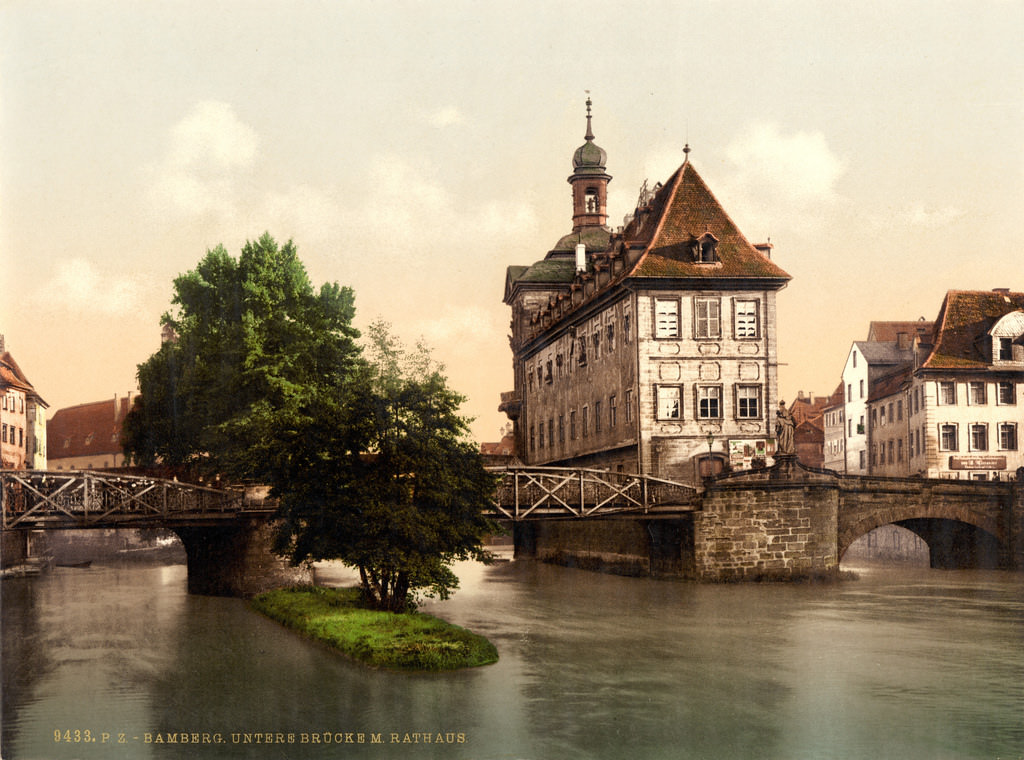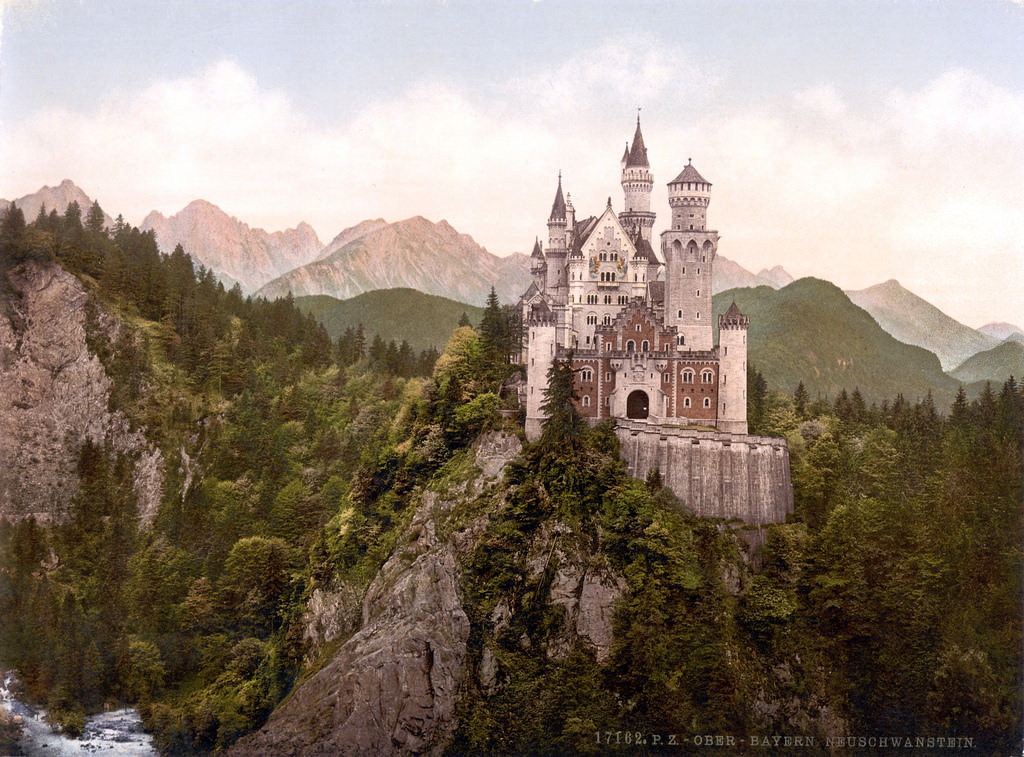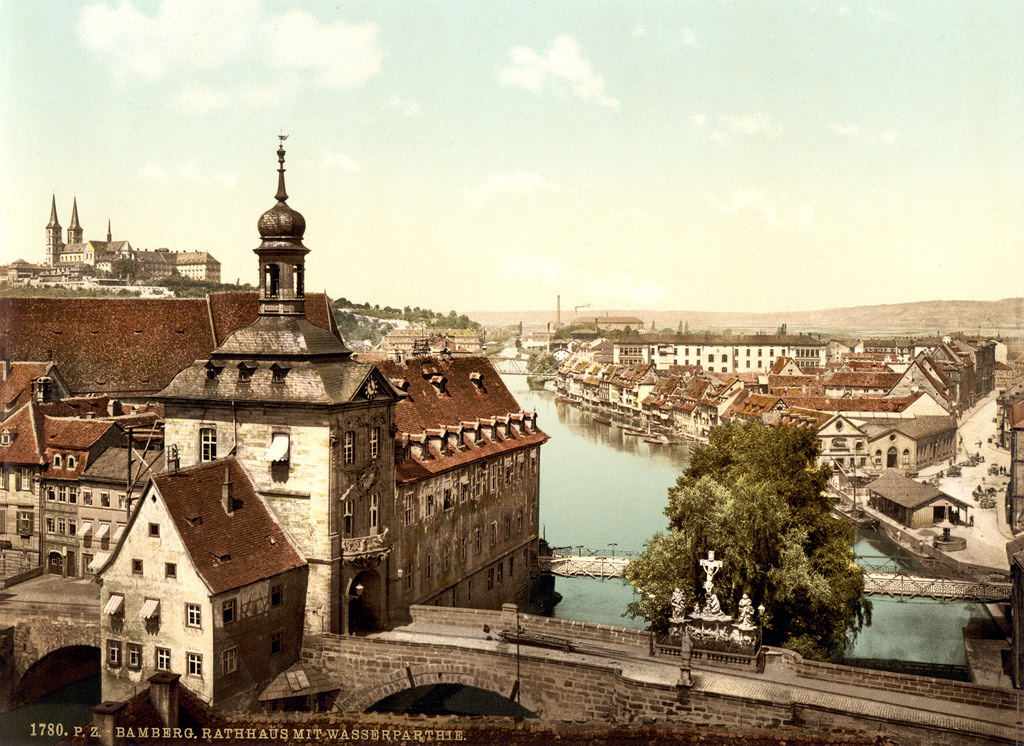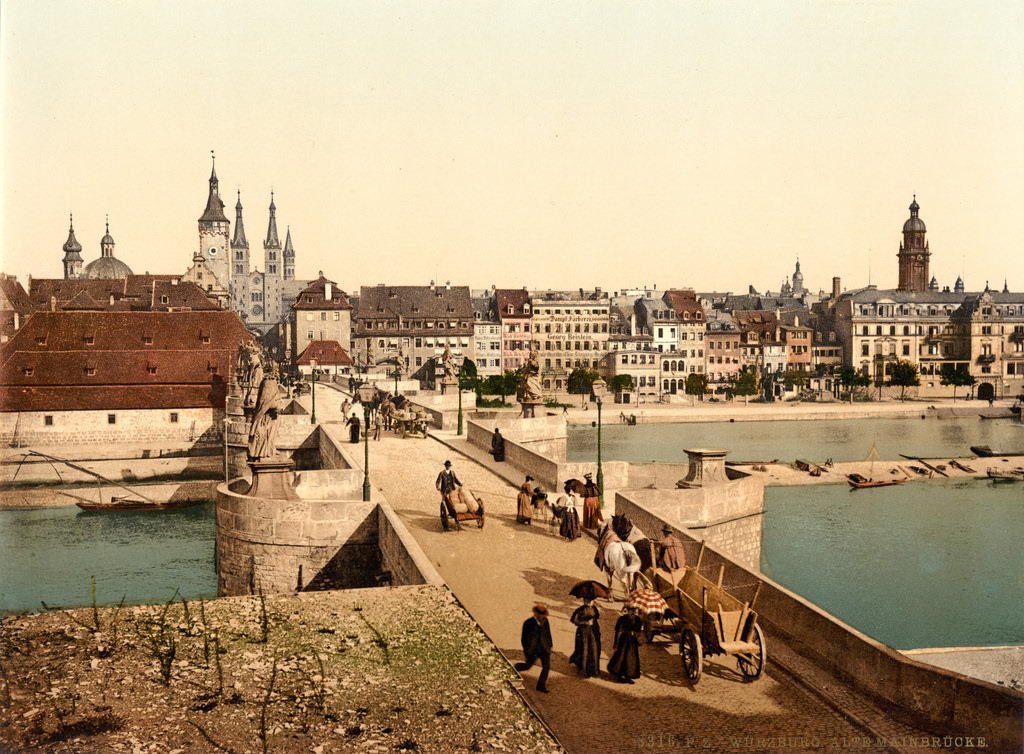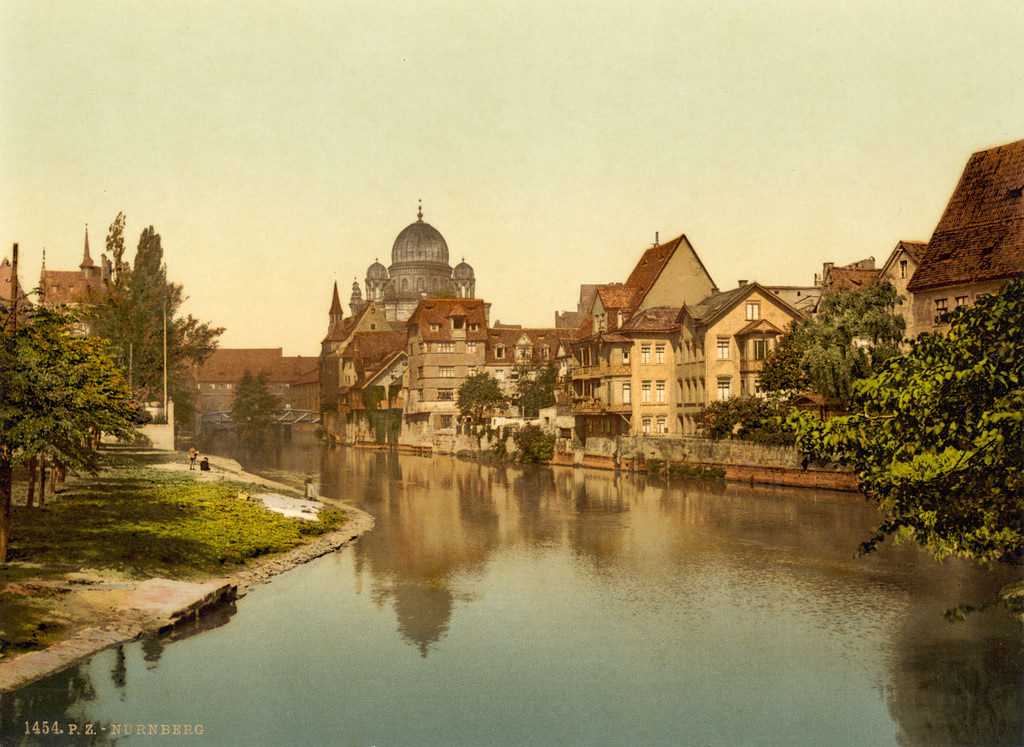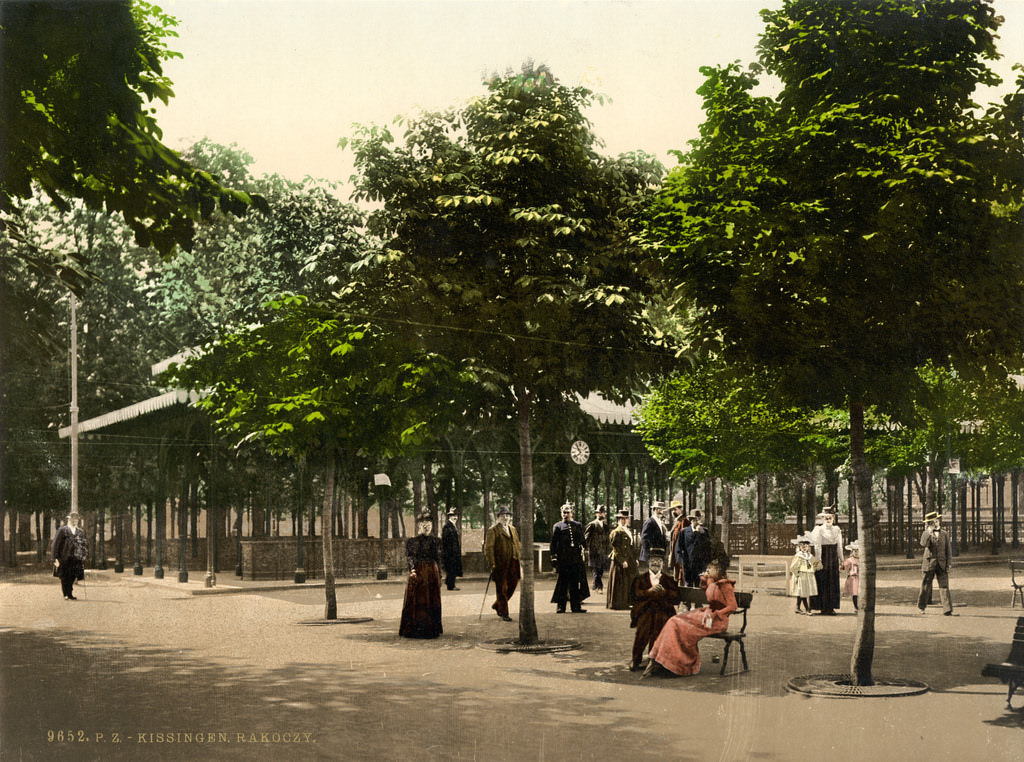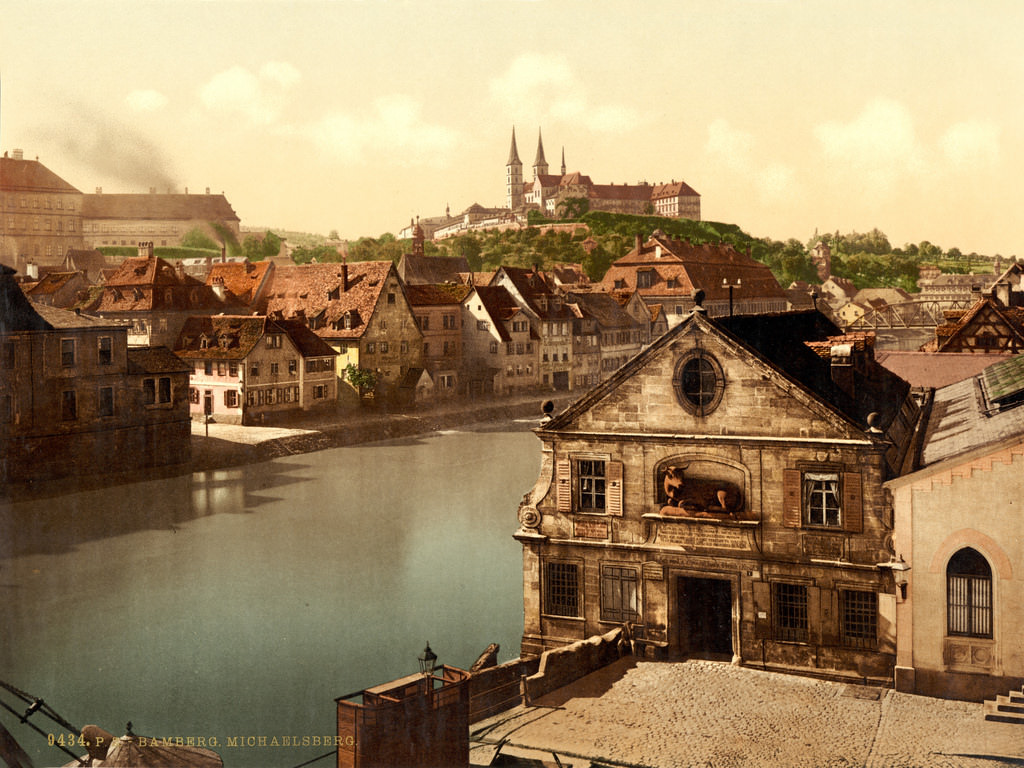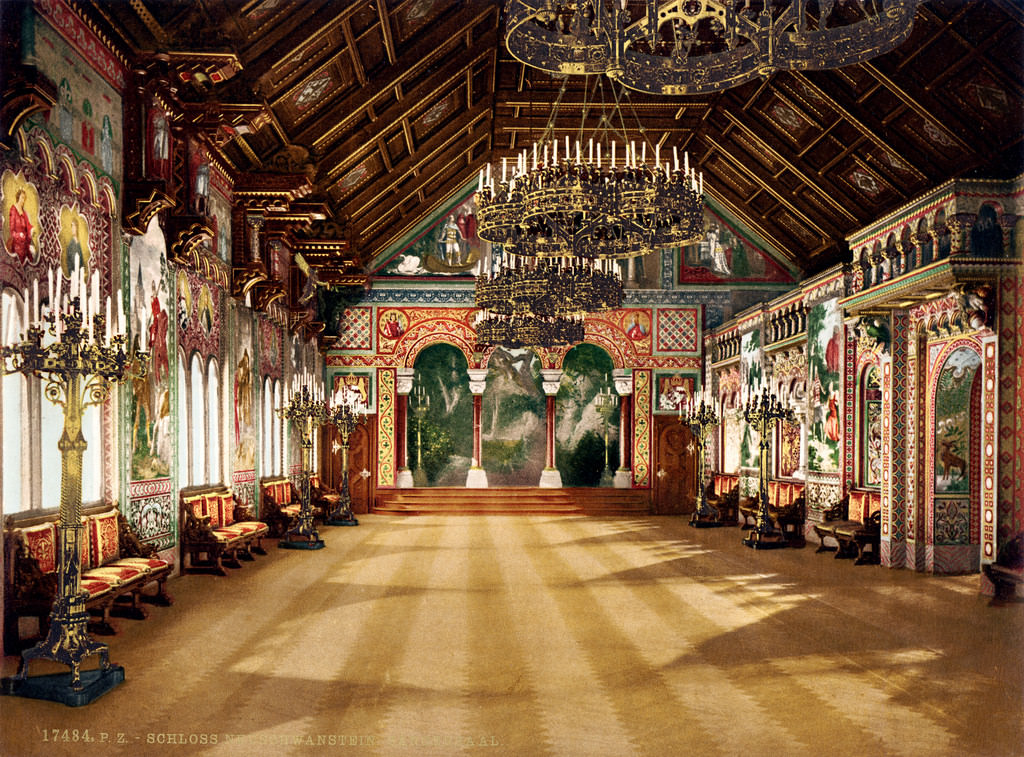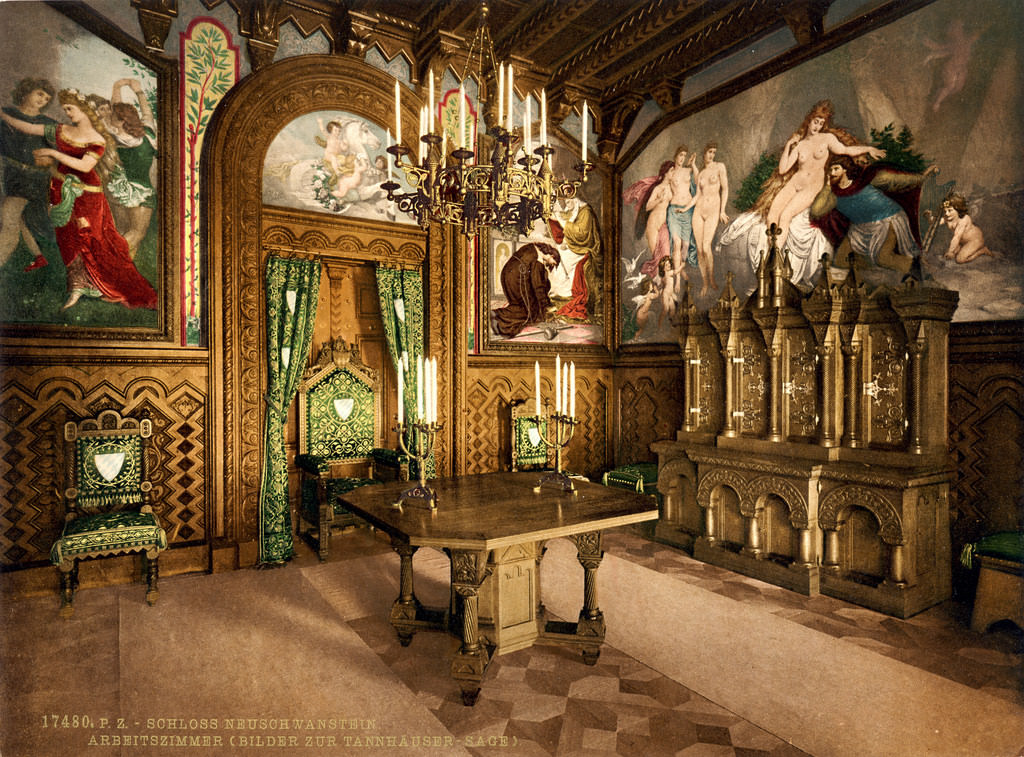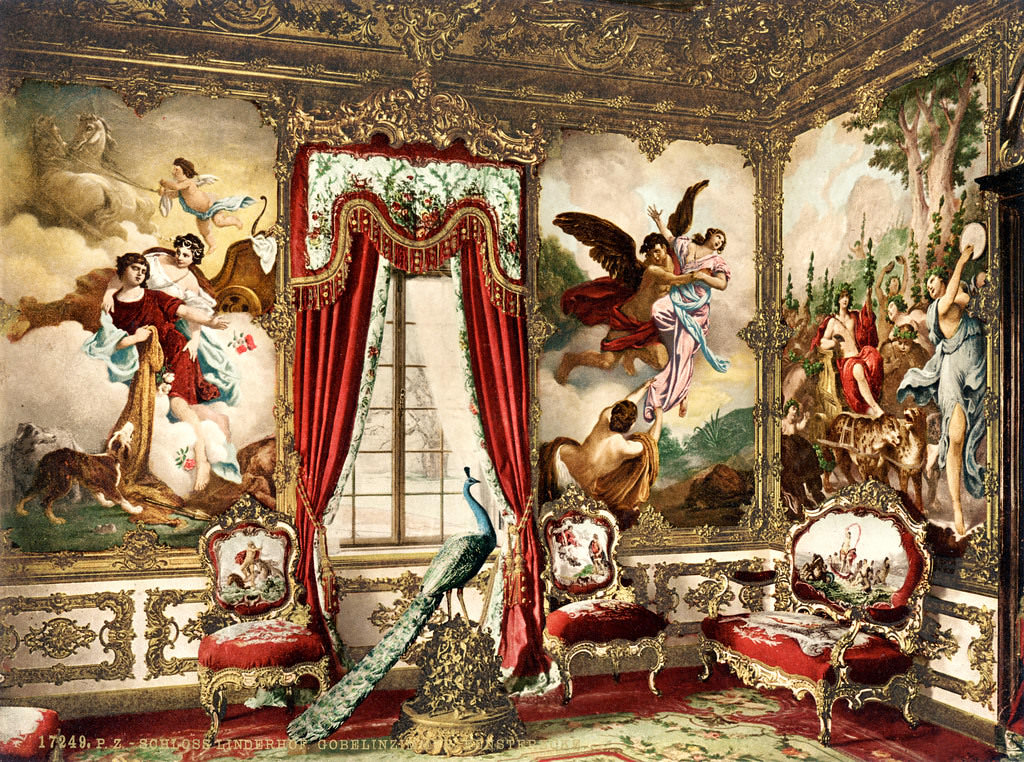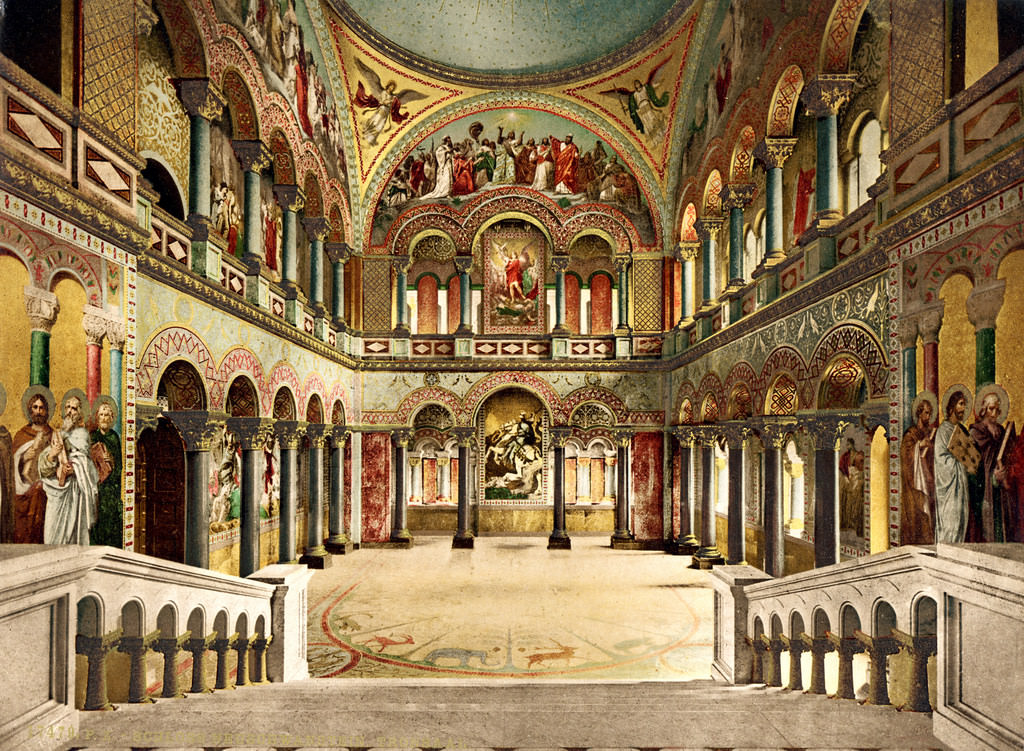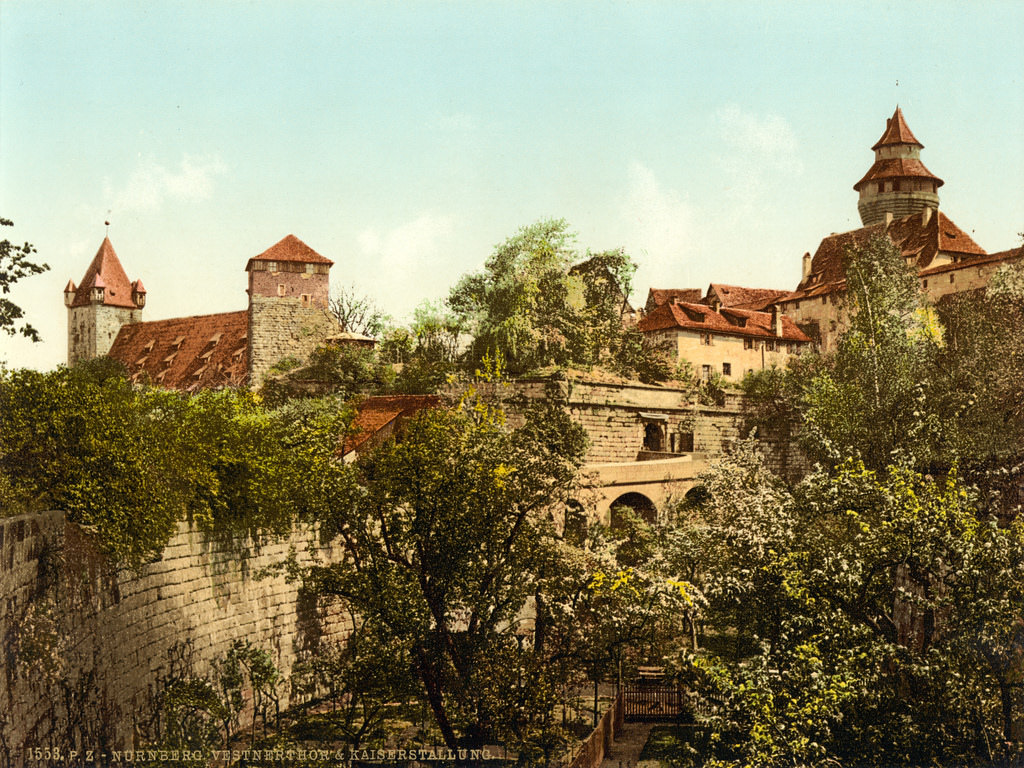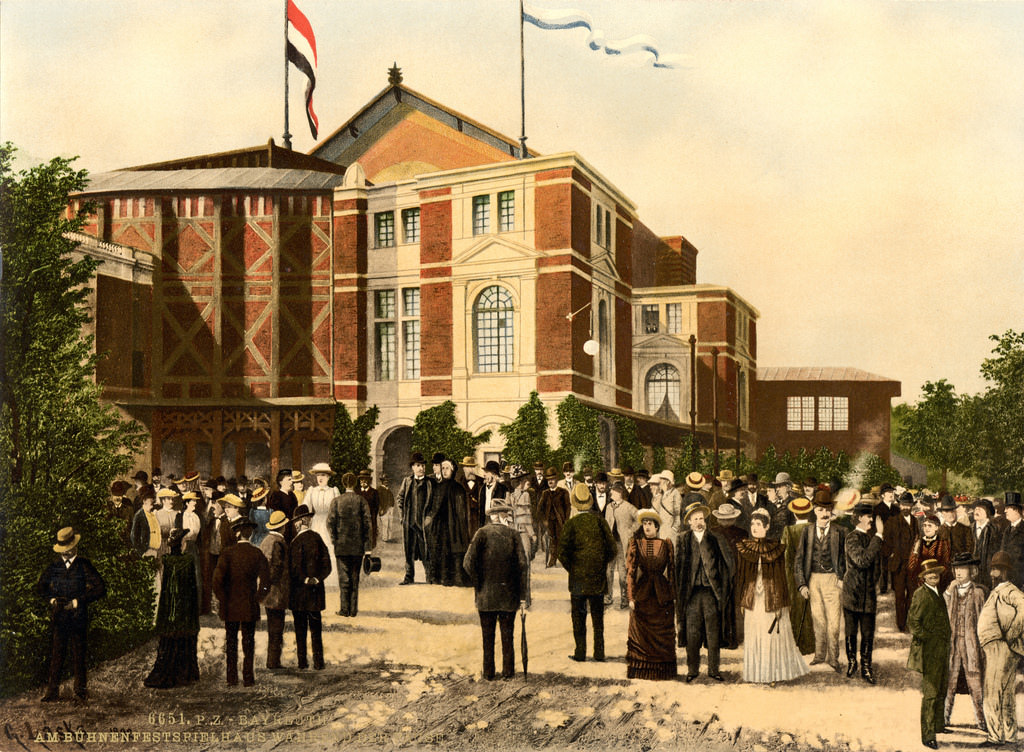There’s an uncanny charm about old photographs; they invite us into a world that once was, serving as portals into the past. One such series of images that offers us an intriguing glimpse into the bygone era is the photochrome prints of Bavaria, the largest state in Germany, from the 1890s. So, let’s step back in time and embark on this nostalgic journey to discover the beauty and allure of Bavaria over a century ago.
Bavaria, in the late 19th century, was a land of contrast and diversity. This period, just before the turn of the century, was one of significant change and progress, and these photochromes help us capture that essence beautifully.
Bavarian Landscapes
The photochromes from this era reveal a Bavaria that is both rustic and grand. Images of Bavaria’s enchanting landscapes, adorned with mountains, forests, and rivers, show a region in harmony with nature. The towering Alps, Bavaria’s trademark feature, stand majestic against the backdrop of clear blue skies, their snow-capped peaks glistening in the sunlight. You can also see the serene Danube flowing gently across the Bavarian plains, framed by lush, green fields and quaint villages.
Cities and Architecture
The cities, too, make a compelling appearance in the photochrome prints. Munich, the state’s capital, is showcased in all its architectural splendor. Images of the bustling Marienplatz, the gothic Frauenkirche, and the majestic Nymphenburg Palace offer us a tour of Munich’s beautiful cityscape.
Further, the photochromes of Neuschwanstein Castle, one of Bavaria’s most iconic landmarks, are a sight to behold. They present the castle not just as an architectural marvel, but as a fairy-tale dream carved in stone, perched high above the village of Hohenschwangau.
People and Culture
Amidst these grand landscapes and architecture, the photochromes also capture the charm and simplicity of Bavarian life in the 1890s. Images of men and women dressed in traditional Bavarian attire – lederhosen for men and dirndls for women – give us a flavor of the local culture. The photos capture farmers working in the fields, market scenes, local festivities, and communal gatherings, reminding us of a slower, simpler way of life.


